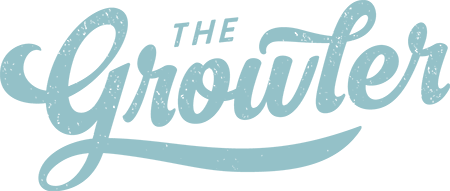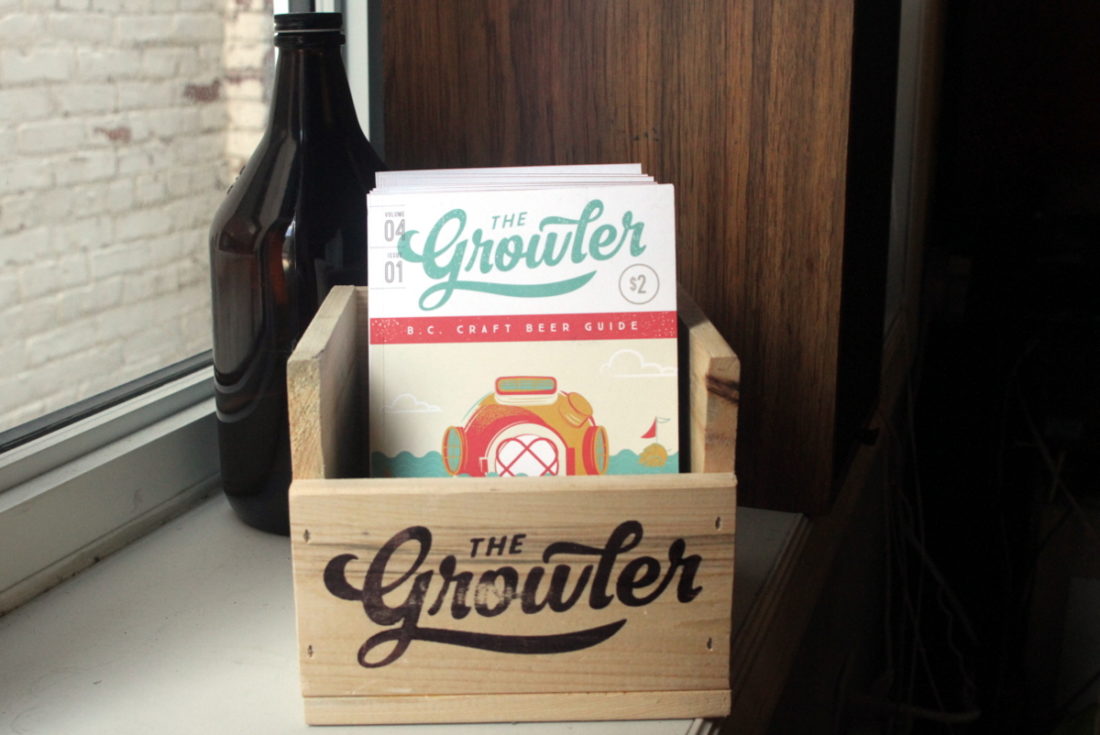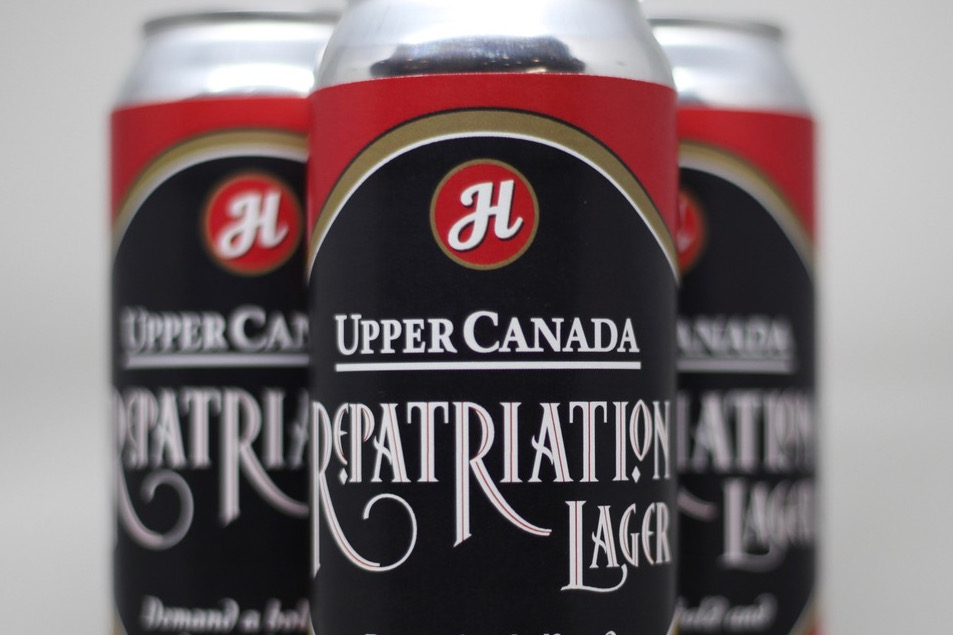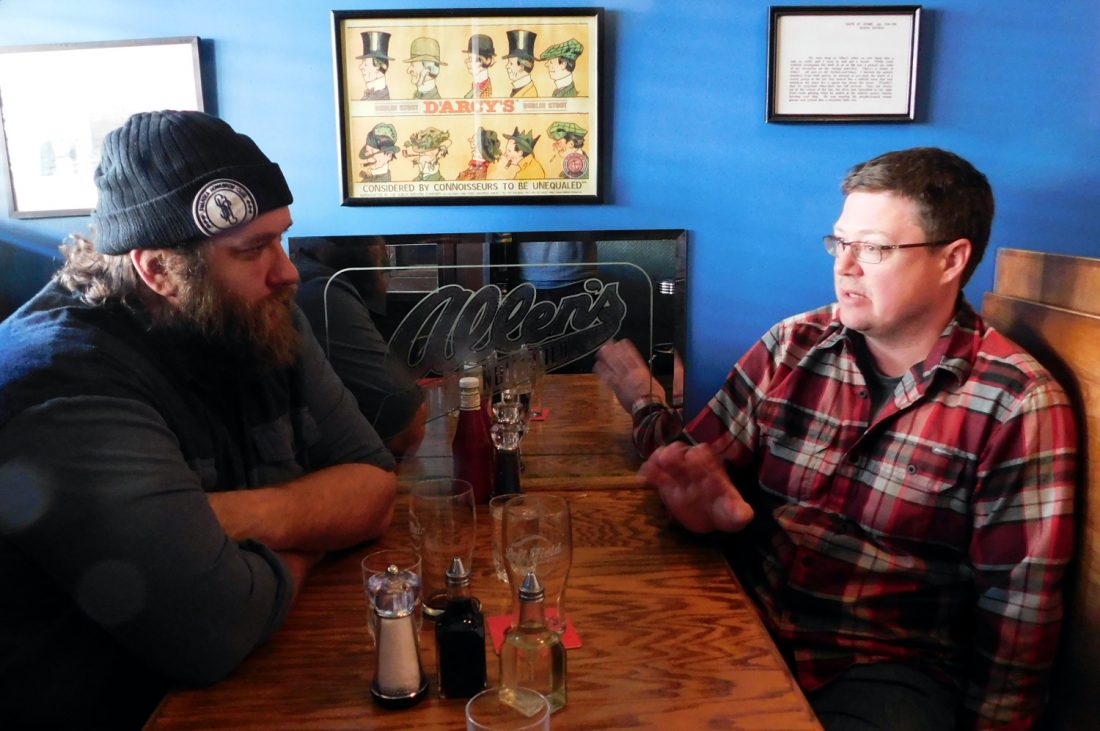
There are a few big weekends in the Ontario craft beer calendar. May 2-4, Canada Day and the rest of summer’s long-weekend gang come to mind, but none is really as important as the one after Thanksgiving when Cask Days takes over the Evergreen Brick Works in Toronto.
This year, the event brought together over 400 beers from nine different states and provinces.
It also brought Matt Tweedy, co-owner and head brewer at Tooth & Nail in Ottawa to town and that meant I had a chance to sit down with him and Indie Alehouse’s brewing director Jeff Broeders.
We got together over a few pints in the front booth at Allen’s on the Danforth to chat about what is driving their shared passion for making great beers.
Growler: How did you guys get to be where you’re at now?
Broeders: Jason Fisher brought me on six years ago. He found me at Niagara College and we saw eye-to-eye on what we like. I had no idea what I was getting myself into. You start popping beer into barrels and over time we grew to 80 barrels, then 160. We’re hoping to put out 500 hectolitres of barrel-aged beer next year.
Tweedy: My wife Dayna and I started Tooth & Nail. For us, creating an environment that we would like to sit and drink in was first and foremost. The beer was going to drive the business, but it was also about the experience. I was adamant that in the beginning we would focus on traditional, clean and easy-drinking styles of beer. Try to hone in on simplicity instead of trying to out-do everyone else with the new fad. At that point, it wasn’t the long-term plan but because of the success we’ve had, we’ve stuck to it. The long-term plan is starting to come into play. We are looking for a facilty to start allowing us to do sour and barrel-aged beer.
On the current state of Ontario craft beer
Growler: Where is the Ontario market at?
Tweedy: We’re easily 10 years behind the U.S. in terms of customer palate development. You go to any local sports bar in the U.S. and you’ve got a draught line-up that you’d never even see here.
Growler: Is that palate or how the marketplace is regulated?
Tweedy: One probably feeds the other. The more you’re exposed to these quality products—like Allagash White, one of the highest quality beers produced in the U.S.—developing a taste for those products leads the consumer to become discerning. We’ve got a lot of discerning consumers in Ontario but the population as a whole is undergoing a discovery period.
Broeders: Distribution has a lot to do with it. In general, bar owners are lazy. We don’t deal with many lazy bar owners, but others just want to go on that one page from the Beer Store and click.
Tweedy: There’s still a pay-to-play mentality. It’s insane in this province. I get asked if bars can carry Vim & Vigor. Sure, we can do that. ”It will cost you $2,000 and we’ll be loyal to your product,” they say. I say: “Don’t ever call me again.”
Broeders: Get it in writing.
Tweedy: I understand the restaurant and bar business very well. I was part of it for 12 years. I still own a bar. [A brewery] sells a keg for $150, that bar owner is generally going to generate $550 in revenue. Why do I need to give you something? I’m the only reason you can pay your bills. I’m simplifying how hard it is to be a bar owner. It’s one of the hardest jobs out there and I don’t mean to disrespect that. I’m just not going to play the game. I make limited amounts of beer that I think is the best beer that I can possibly produce. I put my heart and soul into so I’m not going to start selling for less.
Growler: Is there one thing the Ontario government can do to help craft beer?
Broeders: Every brewery would sell more beer if it was in corner stores.
Tweedy: Tons more beer. But part of that system’s flaw is that you can go to any corner store in Quebec with an amazing beer selection and you pull a six-pack off the shelf and it’s a year old.
Growler: What will help?
Tweedy: The number one thing that the government can do is recreate what Brewer’s Retail [was supposed to be.] Indie Alehouse’s bottle shop can sell my beer and vice versa. You save the customer from going to as many places and if I go with Beyond the Pale, Dominion City and Kichessippi I now have three more outlets for my beer where people care about the quality, that it’s kept cold and fresh. You would see growth in the industry like you’ve never seen. Breweries tend to do great things for their communities.
Growler: How do you think about the bottle shop?
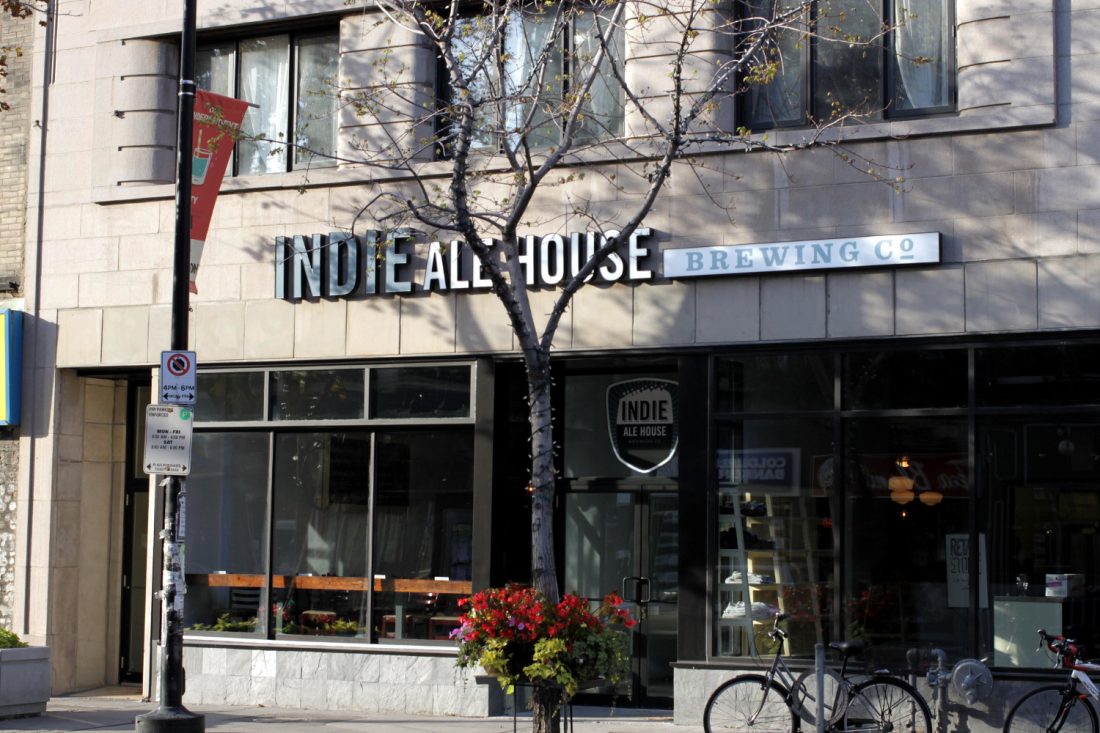
Broeders: We have a slightly different philosophy. We try to do as many releases as posssible. I’m trying to create a culture at Indie where we’re a team and have everyone experiment their own way. We work together to always execute the best recipe we can, but one thing our customers really like is that new beer on tap once or twice a month.
Tweedy: Do those new beers on tap go through the bottle shop as well?
Broeders: Yes. We’ll decide how much goes out, but yes. We’re able to do this because we’re so small batch. We do 10 barrels at once.
Challenges for craft beer
Growler: Are you more concerned with craft brewers that are fine with mediocrity or big-brewery marketing?
Tweedy: I’m most concerned with contract brewers, to be honest. I’ve come to have a disdain for some of those brands. Some have created what, in my opinion, is pretty mediocre beer. They flooded the marketplace with huge marketing initiatives. It becomes very difficult for a brewery owner, like myself, to get a bar owner interested in paying for my product. I think the people in charge of those products are very savvy businesspeople, and I respect that, but unfortunately beer is a business that I take a huge amount of pride in. Big breweries? I have a little brewery on a corner in Ottawa, I don’t think Molson gives a shit about me.
Broeders: I’m upset with people settling for mediocrity. Especially brewers. I put a lot of attention into trying to make sure I’m always getting better.
Tweedy: That’s what drives you as a brewer. That’s why you brew.
Broeders: If I can do better today it will make my life easier down the road. Contract brewers tie into that. They just hand a piece of paper to someone, not even a recipe, they just want “pilsner.”
Tweedy: The flipside is that we’re both drinking [Left Field’s] Eephus, which was a contract-brewed beer in the beginning. It was very clear from the first pint of Eephus that came out that Mark and Mandie were going to build a brewery. That’s extremely rare. It does happen and I do respect it.
Thoughts on Cask Days
Growler: What’s Cask Days about for you guys?
Broeders: Inspiration? No.
Tweedy: Every single brewer walks in the front door and goes straight to their cask because with cask-conditioned ale.
Broeders: You never know what you’re going to get.
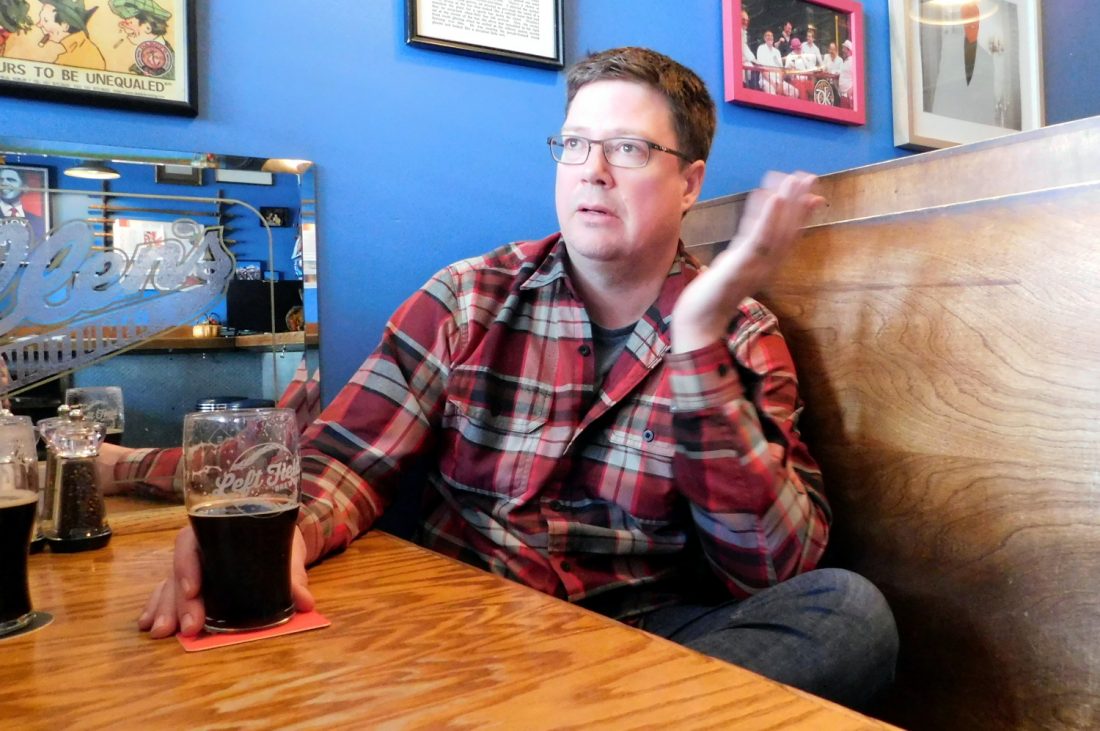
Tweedy: Cask ale is hard to plan for. We think about trying a couple of fun ideas. But you have no clue what it’s going to be like.
Broeders: It’s not about making the best cask beer.
Tweedy: Nobody really remembers that one that was really outstanding. There’s a lot of good beer, there’s a lot of bad beer.
